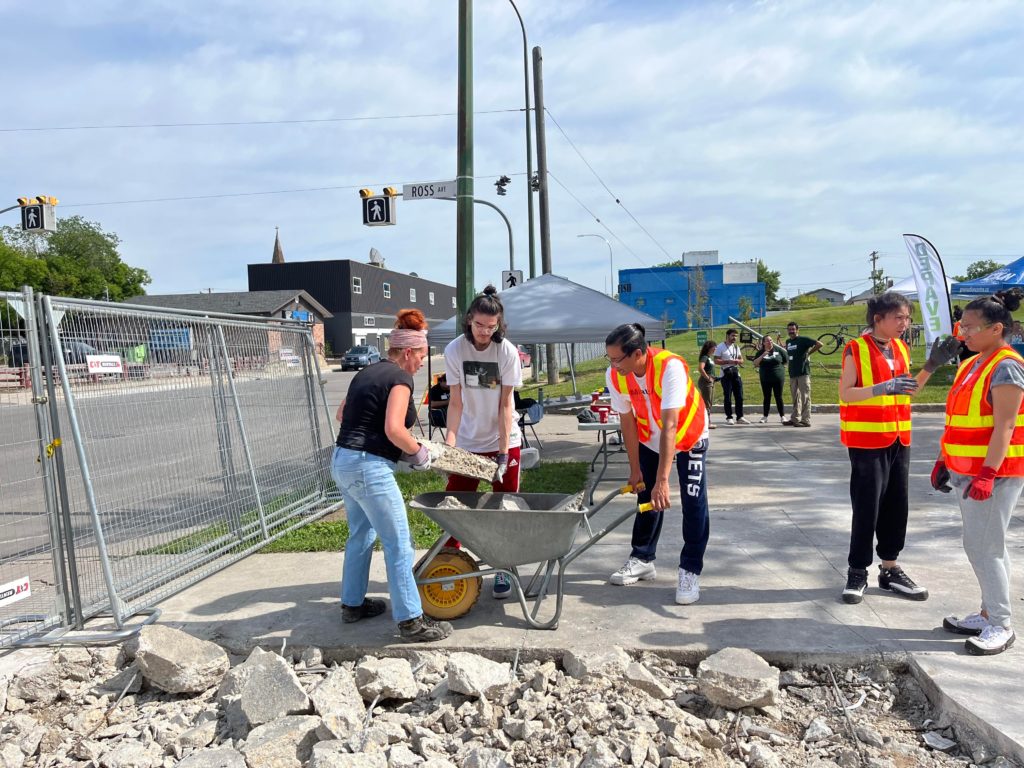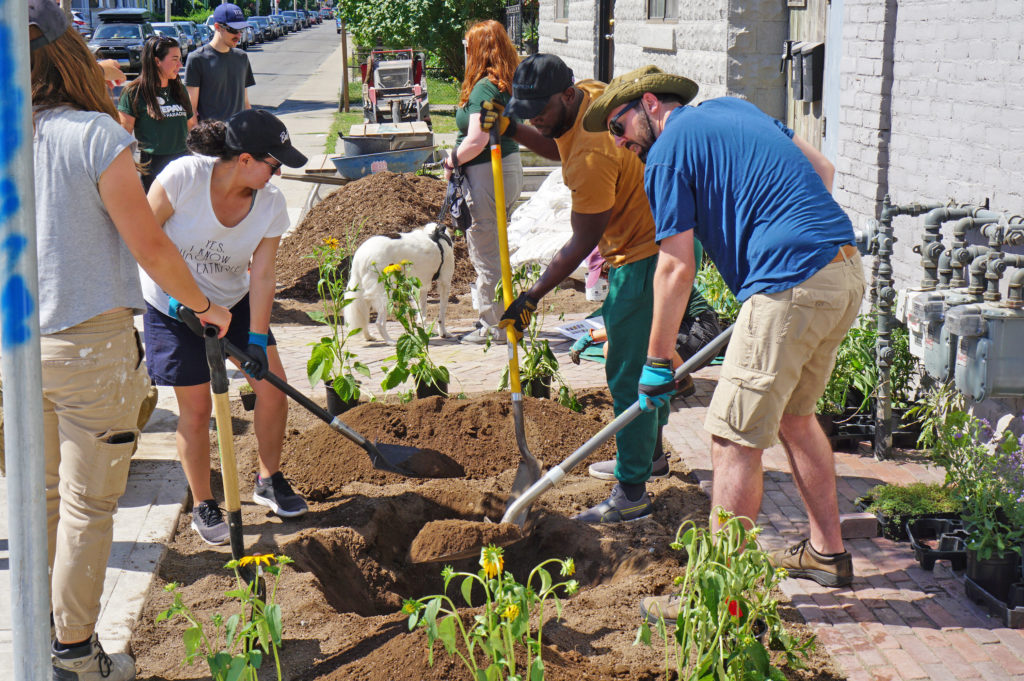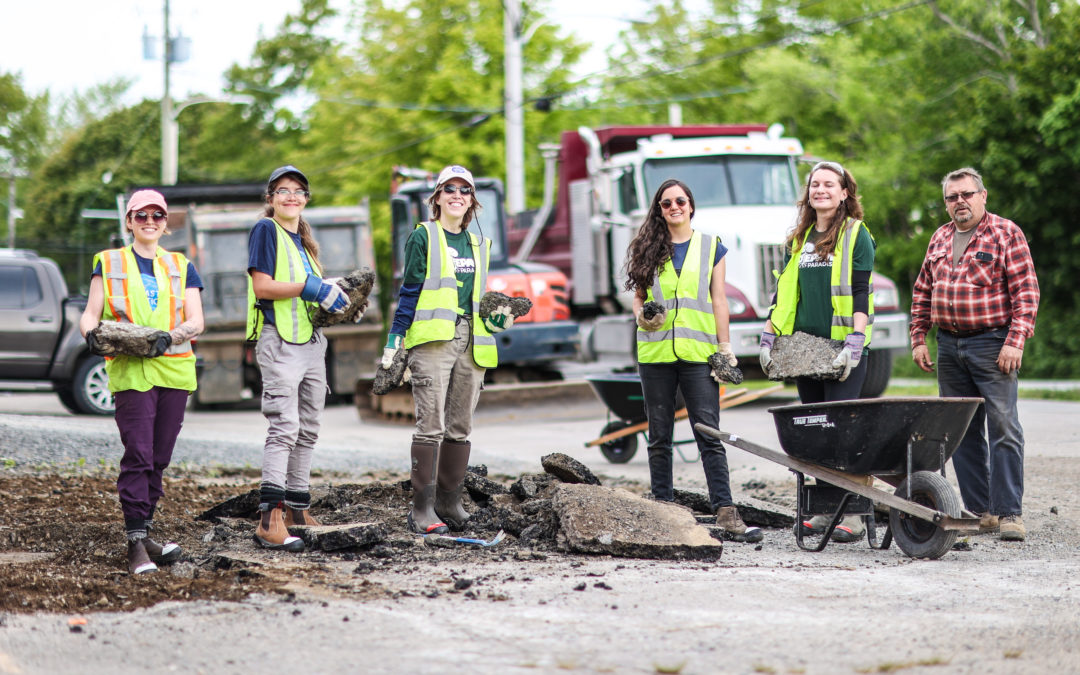The 2022 Depave Paradise season has come to a close, with 15 new Depave projects completed this year. Since the creation of the program in 2012, Depave Paradise has completed 80 projects across 32 Canadian cities, converting a total of 16,384 m2 of unused paved surface into beautiful community green spaces with native grasses, flowers and trees.
This wouldn’t have been possible without nearly 6,000 volunteers who dedicated their time (over 4,200 volunteer hours!) to transform their community spaces, armed with nothing more than wheelbarrows and hand tools. Piles of pavement that look daunting at first proves to be no problem for volunteers who work tirelessly to get the job done in no time at all.
“Having participated in the initial de-paving of Seaside Park, it was truly an incredible experience watching it transform from 130 m² of pavement, into a beautiful pollinator garden with over 200 native plants. Everyone was so excited about the transformation that nobody wanted to take a break; we had all of the soil (14 cubic yards to be exact), berms, plants, trail, and mulch placed in just two hours! We all worked hard but had just as much fun, accompanied by a strong sense of community and accomplishment. I look forward to seeing more areas become a Depave Paradise in the future!” – Volunteer at Depave Seaside Park

Volunteers working to remove pavement at Rossbrook House in Winnipeg Photo Credit: Green Action Centre
So why exactly has Depave Paradise caught on so quickly across Canadian communities? There are so many reasons!
For one, the results are stunning! Once unused pavement is now green with native grasses and wildflowers, trees and shrubs. These additions support habitat for local pollinators, all while helping cool urban heat. Rainwater absorbed by this vegetation will divert more than 24,000 kg of stormwater from local waterways annually, by filtering the water away from traditional pipe and drainage systems. These lasting changes increase climate resilience and help bring nature back into urban ecosystems.

Volunteers planting at Hello Baked in Hamilton Photo Credit: Green Venture
While these sites are hard at work protecting local water quality, they also provide community members with places to relax and connect with nature while exercising and socializing with neighbours and friends. Volunteers have expressed how depaving not only results in a physical transformation of the space, but also changes the community as a whole, as they come together with a common goal during the process.
“Depave brought new life to our little corner of the world and we will be forever grateful.
We really want that corner of the neighbourhood to be a meeting and gathering place. The whole philosophy of community is also rooted in the appreciation of natural organic relationships, which includes the earth, so it was very symbolic for us to be able to remove layers of concrete and asphalt and replace it with something alive and growing.” – Zahra Dhanani (Co-Founder of Old’s Cool General Store)
Green Communities Canada wishes to thank all the partners, funders, volunteers and community organizations who made the successes of this past year possible. As we look ahead to the year to come, we are excited to be working with a number of local communities on the Living Cities Canada: Green For All project, to help municipalities move beyond demonstration sites, and strategically implement policies to help bring green infrastructure into the mainstream.
Watch this summary video of the projects completed in 2021 – 2022
